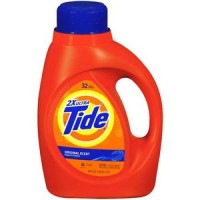Over Christmas I heard from several longtime friends who, like me, are homeschool moms. In fact, I’m the only one who’s “retired” from homeschooling. The rest are still at it with one or more younger children, but they also have adult children that they homeschooled all the way through high school.
I love talking with these women. We share a common history that most people can’t understand, and of course, that’s the main topic of conversation (besides our children, of course).
However, I have to admit that, despite being homeschooled, some of our now-adult children have disappointed us in different ways. (I can’t share too many details here, because I want to respect the privacy of these young adults.) In most cases, they’re doing great making their way in the world, but some have made sinful choices in their personal lives that have upset their parents. In one extreme case, someone chose a lifestyle that nearly killed them; sadly, they’re not out of the woods yet, after more than a year. (It really grieved me to hear about that person).
We moms openly share our disappointments with each other knowing that we can relate to each other so very well. We all had such great expectations, and some of them have been dashed.
I know this is common for parents. But I think it’s especially painful for homeschooling parents because we devoted our daily lives to raising our children, not because we had nothing better to do, but in part because we expected that our efforts would reap benefits for our children. And while the adult children I know have clearly reaped educational benefits from homeschooling, some of their lifestyle choices make it clear that not everything we taught them stuck.
I should point out that some of our expectations were created by the books we read and the speakers we listened to back when we were new homeschoolers. Even now, you’ll find some saying that homeschooling creates strong Christians, good citizens, yada yada. In fact, some people have made lucrative careers out of saying those things. It’s what everyone wants to hear. After all, why should we go through all this work if it’s not going to pay off?
But the fact is that there are no guarantees. And to those who point fingers and say, “Well, if you just do it right, your kids will turn out right,” I say “Beans!” I realize there’s no question that my husband and I made mistakes. All parents do. But when I think of how the Israelites treated God (see Exodus), why did I expect that none of my children would rebel or go in a different direction from the way we pointed them? Clearly each person must make their own way in life (and hopefully toward God). Not even the love of a homeschooling parent can overcome the effects of sin in the world.
But of course we had to try, and those of us specifically called to homeschool our children can’t regret it. (My mom friends and I talked about that a lot over Christmas!) We tried our best, but we’re learning that ultimately, our adult children’s lives are between them and God.
As for the verse in Proverbs that homeschoolers quote so often, “Train up a child in the way he should go and when he is old he will not depart from it,” I’ve written before that it’s a principle, not a promise, and also that we can’t ignore that phrase “when he is old.” Homeschooling doesn’t turn out perfectly formed adults at age 18. Each person is a lifelong project of God’s. We homeschooling parents were deeply involved in the first stage, but God will use all sorts of people and events to shape our children over the course of their lives. Hopefully there’s still time for each one of them to come to the personal realization that living God’s way is the only way to live. (We talked a lot about that, too.)
If newer homeschoolers could have heard our conversations over Christmas, it might have frightened them. That vision of homeschool success is what kept us going during the most difficult times, and I hate to pop that bubble for anyone.
That said, I suspect that even if every homeschooling parent could be convinced that homeschooling is good but doesn’t create perfect adults, they’ll still be disappointed someday if their adult child makes poor choices. It’s what happens when you love someone so much. And since it’s this painful for us, imagine how God, the only perfect parent, feels when He sees us making similar poor choices.



